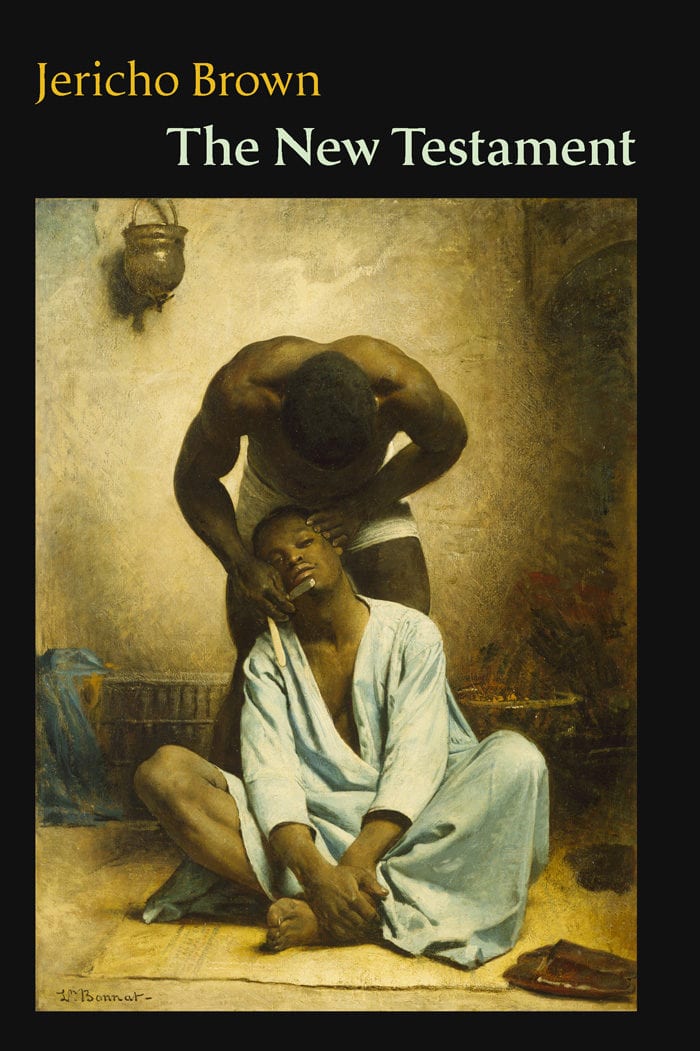
In The New Testament, Jericho Brown summons myth, fable, elegy, and fairy tale in a tender examination of race, masculinity, and sexuality. Intensely musical, Brown’s poetry is suffused with reverence—simultaneously transporting and transforming the reader. “As for praise and worship,” Brown says, “I prefer the latter.”
A triumphant second collection, The New Testament laments the erasure of culture and ethnicity, elegizes two brothers haunted by shame, yet extols survival in the face of brutality and disease. Brown seeks not to revise the Bible but to find the source of redemption.
ISBN: 9781556594571
Format: Paperback
Reviews
“In his second collection, Brown treats disease and love and lust between men with a gentle touch, returning again and again to the stories of the Bible, which confirm or dispute his vision of real life. ‘Every last word is contagious,’ he writes, awake to all the implications of that phrase. There is plenty of guilt—survivor’s guilt, sinner’s guilt—and ever-present death, but also the joy of survival and and sin.” —NPR
“Erotic and grief-stricken, ministerial and playful, Brown offers his reader a journey unlike any other in contemporary poetry.” —Rain Taxi
“To read Jericho Brown’s poems is to encounter devastating genius.” —Claudia Rankine
“Brown’s is a necessary art in an era that has seen lingering racial conflict and growing acceptance of gays in America, as well as extreme intolerance and homophobia in many countries overseas. These poems work because while they emanate from an intimately personal place, social concerns loom as large as the barber in Bonnat’s painting. To merge the private with the public so seamlessly is an enviable feat.” —Antioch Review
